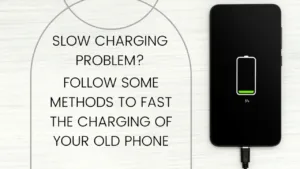
Napping beneficial for brain:

In the current society where everything moves so quickly and it doesn’t stop, every second matters, napping always makes people think you are not working hard enough. But recent studies actually suggest that sleeping is more than indulgence or luxury that people may associate with lazy individuals but that it may serve as an advantage to human mind.
Now let’s explore what such a break at noon can do to enhance memory functioning; make us smarter by strengthening various areas responsible for different actions (such as learning and problem-solving) as well as assisting us emotionally with our well-being.
The Science Behind Napping:

The brain’s response to napping has been studied by many researchers. One critical research published in the “Nature Neuroscience” journal found that taking a short nap could greatly enhance cognitive function. According to the study participants who had a 20 minute nap were more attentive and performed better in memory tests than those that didn’t nap.
Furthermore, another similar study from University of California Berkeley has illustrated the role of napping in clearing away short term memories thereby creating space for fresh knowledge processing inside it. This activity seen as resetting enables more information intake so as to improve learning efficiency.
Types of Naps and Their Benefits:

Taking a nap is not a one-size fits-all kind of activity. Several forms of napping can result in different advantages:
1. The Power Nap (10-20 minutes): This brief siesta is perfect for gaining a short burst in attentiveness and vigour. It is excellent after lunch for boosting energy levels without drowsiness.
2. The Midday Siesta (30-60 minutes): Longer siestas can be good for memory retention and rational thinking. Nonetheless, upon awakening, you might experience some lethargy which is scientifically referred to as sleep inertia.
3. The Full Cycle Nap (90 minutes): During this nap, one passes through each stage of sleep including light sleep, deep sleep and REM sleep. That means emotional and procedural memory plus creativity are usually improved through this nap making you feel rejuvenated.
Cognitive Benefits of Napping:

1. Greater Memory: Nap boosts recollection and governance of memory by moving information from short-term to long-term memory. To this end, it is desirable for students and professionals who have the necessity to remember much information.
2. Improved Learning: As a result of better learning by getting rid of stuff from our short-time memory banks, this process allows us to learn even more during naps than without them according to researches made recently at University College London (Norbury et al., 2005). People that take naps are more likely to remember new information they had acquired earlier hence outperform others in recalling this information during recall tests.
3. More creativity: Increased creativity has been linked to REM sleep which takes place during longer naps. During this stage of sleep, novel connections between different concepts are made leading to creative problem solving and innovative ideas or solutions.
4. More Happiness: Napping helps one feel better by reducing tension and nervous breakdowns caused by too much work pressure. Moreover, appropriate napping makes you feel more composed hence making you ready to complete any other engagements awaiting you throughout the day.
Practical Tips for Effective Napping:

Here are some suggestions for how to enjoy naps to the fullest:
Get your timing right: Nap between 1.00 p.m. and 3.00 p.m. when the body’s natural circadian rhythms cause drowsiness.
Consider the environment: Please darken the room and turn down any noise in it for better sleeping conditions. Put on eye masks or insert ear plugs if necessary.
Choose how long you want your nap to be based on different reasons such as refreshing quickly (10-20 minutes). However, a 60-90 minute nap can give you more cognitive gains.
Develop a consistent habit around daily naps for better gains in the future.
Functioning of Brain:
As people grow older, they often have a habit of forgetting things after keeping them. At the same time, they face a lot of difficulty in doing any work. Often, dementia is seen in the elderly. This is a brain-related disease. But if you want to keep your brain young even in old age, then we will tell you some special tips.
How to fix a weak mind?
With increasing age, the brain starts to weaken. Memory loss also starts to occur. This is called organic disorder, brain injury and nerve-related problem or disease. If you are also facing any such problem, then we tell you some special remedies.
Do these things, your brain will remain young even in old age
Memory loss can happen at any age. Many problems arise with age.
Omega-3 Fatty Acid
Omega-3 fatty acid is very good for mental health. It works to keep the brain cells healthy. It also reduces inflammation. Omega-3 fatty acid works to increase memory. It also increases focus. Salmon, mackerel, fatty fish, flax seeds, walnuts contain omega-3 fatty acids.
Turmeric
Turmeric is the most important part of Indian kitchen. It has many medicinal properties. It improves your physical and mental health. Turmeric contains curcumin. It contains anti-inflammatory and antioxidant properties. It is very powerful. Turmeric should be added to lukewarm water and drunk. It helps in preventing Alzheimer’s and neurodegenerative diseases.
Ashwagandha
Ashwagandha is a herb that is used in Ayurvedic treatment. Ashwagandha has adaptogenic properties. In such a situation, it works to reduce stress. It also relaxes the brain. If you eat it daily, then you get a lot of benefits. It reduces tension, stress and anxiety.
Brahmi
Brahmi has been given a very important place in Ayurveda. It is very good for mental health. One should focus on Brahmi supplements. Brahmi works to improve the neuro structure of the brain. It works to cure stress, tension, depression.
Conclusion:
Napping is a powerful cognitive enhancement tool as well as memory boost leading to improved brain health. Some other many benefits highlighted by research include napping which is definitely a good way of staying on top of things mentally. Therefore, avoid taking coffee when you get tired in the afternoon but rather rest through brief sleep to revitalize your mind with more energy for one big shot of productivity.
Disclaimer: Some of the information given in the news is based on media reports. Before implementing any suggestion, please consult the concerned expert.











